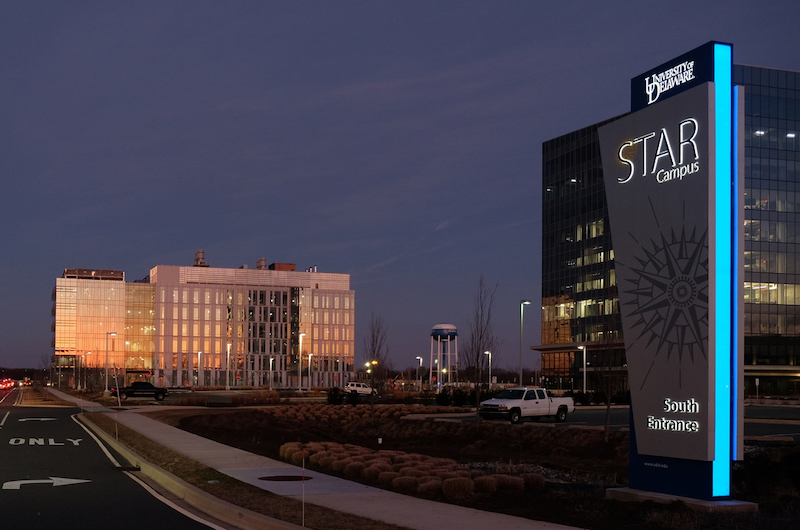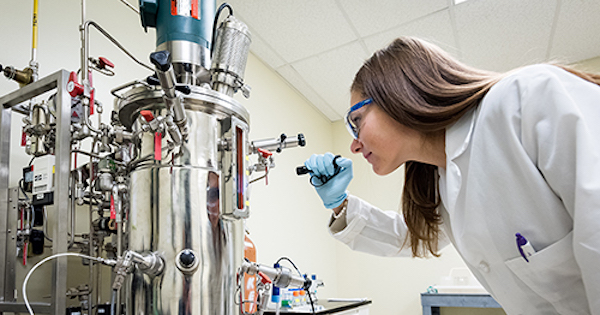With more than two centuries as a leader in scientific breakthroughs, Delaware has evolved to become a hub of life sciences research, sustainable chemistry and advanced manufacturing.
This emphasis on forward-looking research and development is attracting science-based companies to find the perfect location, highly trained employees and enthusiastic support from both the public and private sectors. Just in the last decade, Delaware has seen the number of life sciences firms located here grow by more than 60%.
Sponsored by
Most recently, Delaware was recognized with the BioScience Impact Award as it welcomed WuXi STA, a leading global contract development and manufacturing organization. The company plans a new $510 million pharmaceutical manufacturing campus in booming Middletown that is expected to provide nearly 500 new jobs.
In addition, the state boasts the $156 million Biopharmaceutical Innovation Building at the University of Delaware’s Science, Technology and Advanced Research (STAR) Campus and the National Institute for Innovation in Manufacturing Biopharmaceuticals (NIIMBL). Today, the life sciences sector employs nearly 11,000 people and generates payrolls of at least $230 million and $2 billion in GDP, according to research by the nonprofit public/private economic development resource Delaware Prosperity Partnership (DPP).
But these are only the latest in a substantial list of additions to the First State’s pool of bioscience facilities. Many leading pharmaceutical companies call Delaware and the surrounding area home, and all are committed to collaborating with research and medical institutions to develop and bring to market new medicines, diagnostic products and medical devices.
That’s a lot going on for such a small state. But what Delaware lacks in square mileage, it makes up for with a close-knit business and research community, said John Koh, director of the Delaware Biotechnology Institute.
“We’re so good at forming collaborations in Delaware,” Koh said. “Whether we’re trying to get through regulatory hurdles, trying to find investors or trying to connect with different scientific expertise, we all know each other in this community, so it’s always easy to find what we need. That’s how Delaware competes on the world stage.”
Attracting life sciences firms are the many resources available in the region, the abundant universities and a robust population of degreed scientists and researchers. Just among life sciences disciplines at Delaware institutions, the number of life sciences degrees awarded has grown by 64% since 2010.
Of all biochemists and biophysicists in the United States, 30% work in the Delaware region, with the same area claiming one in six of all U.S. pharmaceutical employees. The greater Philadelphia area, of which Delaware’s New Castle County is a part, ranks fourth in life sciences employment nationally, with about one in five of Delaware’s life sciences employees crossing state lines to work in the state, according to DPP.




Life sciences firms in the state also benefit from support from the state, public/private partnerships like DPP and a growing reservoir of venture capital. Delaware is famous for its corporate-friendly tax structure and now ranks 7th in the United States for life sciences venture capital funding per capita. Since 2000, the National Institutes of Health (NIH) has more than doubled Delaware’s research and development funding, and the state ranks among the top three recipients per capita of funding from the NIH Institutional Development Award (IDeA) program.
“Delaware may be a small state physically,” said Compact Membrane Systems Inc. CEO Erica Nemser, “but it punches way above its weight when it comes to material science.”
For Andrew Cottone, founder and president of contract chemistry firm Adesis, the uniquely Delaware style of doing business is yet another attraction. Adesis recently expanded beyond its New Castle headquarters to 30,000 square feet of research and laboratory space at the DuPont Experimental Station, which sits just across the Brandywine from the original DuPont powder works. Adesis secured the new space with the help of DPP and the officer of Gov. John Carney.
“Delaware moves at the speed of the entrepreneur,” Cottone said. “Having a real partnership with local businesses, to be able to find your answers quickly with the government and have the support of your local, state and federal leaders, help make Delaware a special place for business.”















![[VIDEO] Get More for Your Business in Ardmore. Oklahoma](https://businessfacilities.com/wp-content/uploads/2024/02/maxresdefault-324x160.jpg)
